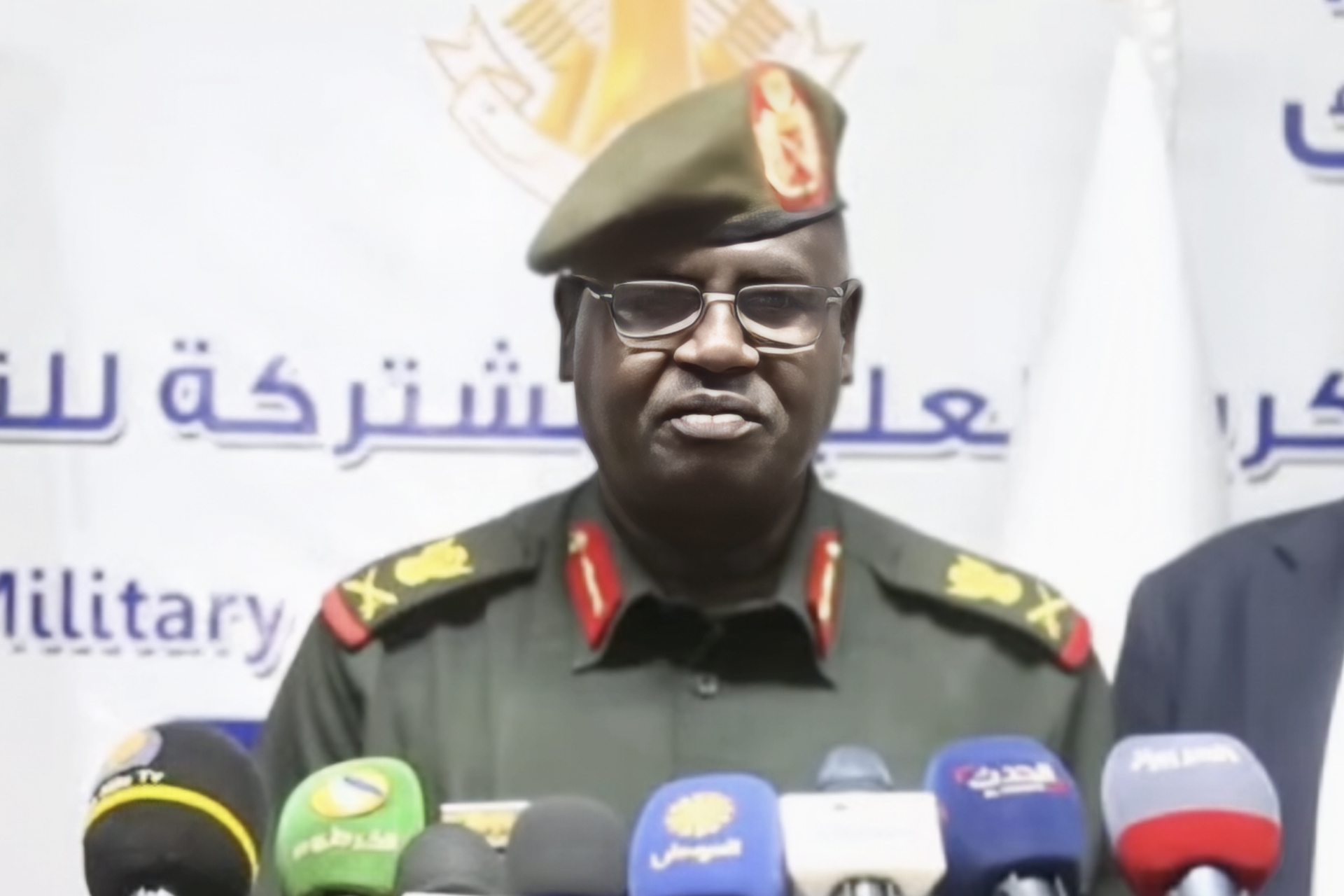Khartoum After about 4 weeks of violent clashes in Sudan between the army and the Rapid Support Forces in the capital Khartoum and several cities in Darfur and the north of the country, and under intense regional and international pressure, the two parties accepted to sit at a negotiating table to discuss humanitarian issues and a ceasefire under local and international supervision following the failure to abide by about 6 pledges made by the two parties to establish a truces that allow the opening of safe corridors and the provision of assistance to those affected.
The army and RSF leaders agreed to US-Saudi mediation to start indirect negotiations in Jeddah, Saudi Arabia, and representatives of both sides were effectively sent to begin these consultations within hours.
The army chose three leaders for its negotiating delegation to Jeddah, headed by Lieutenant General Abu Bakr Faqiri.
Who is Major General Abu Bakr Faqiri?
Mohammed Raji
Major General Dr. Abu Bakr Abu Daqin Faqiri, who was reportedly to represent the armed forces in the negotiations to be held in Juba or Jeddah with the RSF, is the former commander of the Nimeiri Military Academy, participated in the security and military reform workshop held before Andla.
— Dr. Kamal Al-Sharif (@kamalshref) April 29, 2023
Who is the poor?
Major General Abu Bakr Faqiri does not seem to be a well-known figure in the media, but he is one of the faces that have experience in the field of negotiations, and he is characterized by academic qualification and experience in dealing with the file of armed movements in Darfur, and from this section he was entrusted with the chairmanship of the Supreme Committee for Security Arrangements for the Darfur track, one of the tracks agreed upon in the context of the peace agreement signed between the government and the armed movements in Juba, the capital of South Sudan, in October 2020.
His chairmanship of the Security Arrangements Committee opened the door for him to form broad relations with the leaders of the armed movements, as well as with the international and regional community monitoring this agreement.
Maj. Gen. Faqiri is a graduate of the 39th batch of the Armed Forces Air Defense, served as an adviser to the Transitional Military Council (TMC), which took power after the overthrow of former President Omar al-Bashir in April 2019, and was the director of the office of Sovereignty Council member Shams al-Din Kabbashi during the first months of the transition.
Before that, he traveled in the military district commands and the air force in the north and Darfur, and did not miss the theaters of operations in South Sudan before the secession.
The forces of the civil framework agreement in #السودان:
We welcome the reaching of an agreement to start talks at the initiative of Saudi Arabia.
We hope that it will lead #مفاوضات_جدة to stop the fighting and address the humanitarian situation.
We hope that the Jeddah negotiations will pave the way for a sustainable political peaceful solution.#عكاظ #ان_تكون_اولا https://t.co/hiZirp74eV pic.twitter.com/D9VBDiohzv
— Okaz (@OKAZ_online) May 5, 2023
Major General Faqiri participated as part of the armed forces team in the security and military reform workshop, which is part of five workshops agreed upon in the context of the framework agreement paving the way for the handover of power to a civilian government, as this workshop marked the beginning of major differences between the army and the Rapid Support following the disagreement over the time frame for integrating the Rapid Support Forces into the army, and who has authority in their leaders during the transitional period.
At the time, Major General Faqiri presented a paper on the integration processes and arrangements for absorbing soldiers, suggesting that the integration process take place within two years, while the Rapid Support Forces saw that the integration should take 10 years, and prepared a plan to deploy security forces in the Darfur region.
In addition to his negotiating experience, General Faqiri is also a military expert in training for the integration and demobilization of forces, having worked at the Nimeiri Military Academy as a lecturer and then as its head.
Niamey negotiations
Amid media secrecy and without government announcement, General Faqiri headed the military delegation last March that represented the Sudanese government in informal negotiations in Niger with 8 armed factions in Darfur fighting in Libya, culminating in an agreement to allocate a new negotiating platform.
The Niamey consultations were an extension of previous meetings held in August 2022 that discussed the exit of Sudanese fighters from Libya.
Last February, the UN envoy to Libya, Abdullah Batele, said that the Libyan 5+5 military committee had adopted a coordination mechanism for the withdrawal of foreign forces from Libya in cooperation with Sudan and Niger.
One of the participants in these negotiations of the armed movements of Al Jazeera Net says that Major General Faqiri, who headed the delegation of Khartoum in the round of last March / March showed extreme rigor during the deliberations and appeared to be academic qualification and experience in relation to Darfur affairs.
During these negotiations, the details of which have not been announced by the Sudanese government so far, they discussed for about 4 days on reviving the peace process and the possibility of a new platform for negotiations in conjunction with the plan for the withdrawal of fighters from Libya for the Darfuri movements, as well as a comprehensive strategy to address the deportation of Sudanese fighters from Libya, in addition to addressing peacebuilding plans and security arrangements.
In addition to General Faqiri, the Sudanese army delegation includes diplomat Omar Siddiq, a former Khartoum ambassador to China who was an important negotiator during the Sudanese government's negotiating rounds with the Sudan People's Liberation Movement (SPLM) in the town of Naivasha, Kenya.

